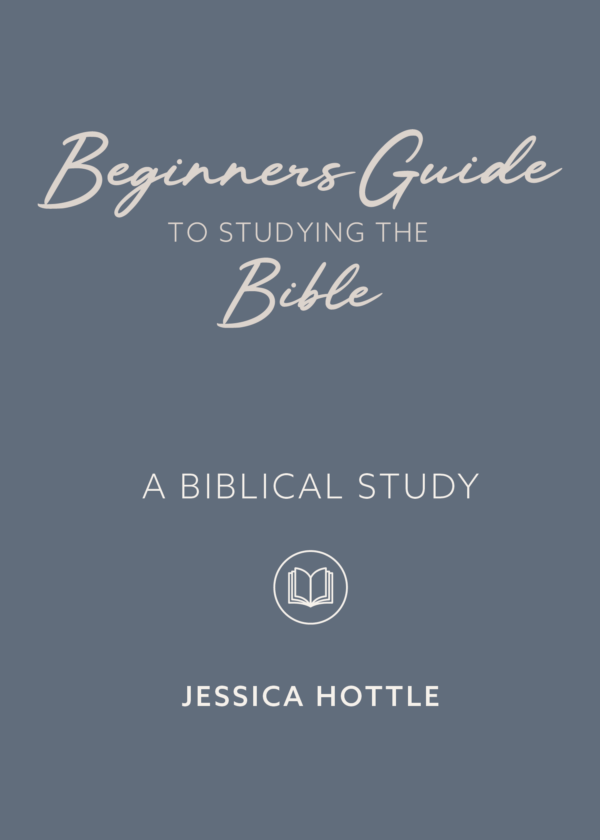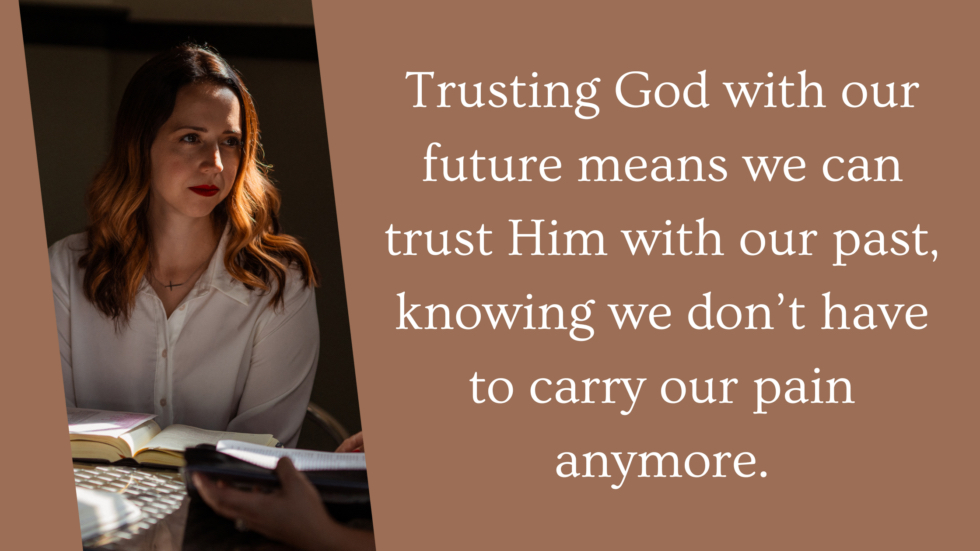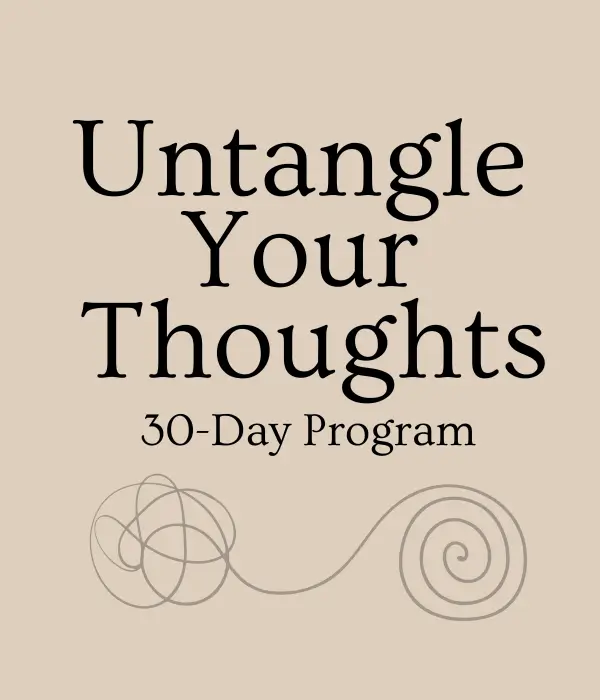Trusting God with our future means it’s equally important for us to allow Him to heal us from the pain of our past as well.
The other night, I was journaling about my feelings, and this is what I wrote down,
“We can bury the pain of our past but it doesn’t mean it’s dead.”
Trusting God requires us to walk through our experiences and pain with Him.
Sometimes I think we, as believers, shove our pain down and top it off with a great scripture and call it healing.
Scripture was never meant to be a bandaid in our life. Merely holding us together. The Word of God, our relationship with Him, provides healing that has side effects of joy, peace, kindness, patience, and gentleness despite if that situation gets brought up again.
By the way, what if I told you your feelings aren’t inherently bad or sinful? You don’t need to fear or suppress them. They can be a guide. If you’re interested, I have a free 3-day study on living by faith while processing emotions. Check it out here!
Our Need for Control
One way we try to cope with our pain is through a false sense of control. There is something about the idea of control that leads us to feel safe. Therefore, trusting God is believing He will come through for us and provide like He always has.
We may think unconsciously, “If I can control this person, situation, or outcome I won’t have to deal with anything uncomfortable or painful.”
If we can control “this,” everything feels in order and all the pieces are in their rightful place. If one of those pieces moves out of place, we feel everything around is crumbling.
Sometimes, trusting God feels unbearable because we think we are in charge.
We build idols around ideologies, hoping they will lead to the safety and comfort we truly desire.
For example, constantly trying new diets. If you can follow the plan to a T, then you will lose weight and feel good about yourself. But what happens when you don’t follow it to a T? You may feel like a failure and that losing weight is impossible. It’s only when you are following it to a T (all pieces are in order) that it feels good.
Anything outside of that brings uncomfortable feelings and doubts.
The uncomfortable feelings are our starting place. This tells us something is happening inside of us, going against our beliefs and making us feel vulnerable and exposed.
Although control is a false sense of security and safety. Understanding that our relationships, money, jobs, all of it, is something given to us by God to steward well. Nothing we have is truly ours. It’s His.
So the question becomes (and always circles back to): Do we trust God? Why or why not? Can we let go and trust God?
To take it one step further, why is trusting God hard for us?
We can believe God is good, but do we believe God is good to us? When we don’t, we then want to take everything into our hands.
The condition of our hearts can change how we view control.
Addressing the issues of our hearts and where we are in our faith journey opens the door for God to come in and sit with you in those places.
Sometimes, we may need to take a break (sabbath or sabbatical) from certain things as we learn to trust the process of healing.
Beginners Guide to Studying the Bible eBook
$5 How do I know where to start reading my Bible? Reading the Bible can feel challenging, overwhelming, and confusing, but with the Beginner’s Guide to Studying the Bible, you’ll find studying God’s Word much less intimidating. The Beginner’s Guide to Studying the Bible will simplify and clarify the Bible’s teachings, making the words of…
Trusting God with Our Pain
How do we know if we are trusting God or not? What about the pain of our past? Do we believe He cares? 3 ways to know our past needs healing and that we are not trusting God:
- When our reaction to our past is as equal as if it’s happening in the present.
- If it’s hard to look at a picture or hear their name without getting angry, bitter, or resentful.
- If we find it hard to pray for them.
We can bury our pain and go on with our lives without ever acknowledging what happened to us.
There’s a difference between dying to our past and burying it alive. This means that we can live in the present through our past pain if we didn’t give it the proper burial.
Trusting God requires us to hand over our offense, forgive, and know He is the one who will provide justice in this life or the next.
Philippians 3:13-14 says, “Brothers and sisters, I do not consider myself yet to have taken hold of it. But one thing I do: Forgetting what is behind and straining toward what is ahead, press on toward the goal to win the prize for which God has called me heavenward in Christ Jesus.”
Some people have misunderstood this verse and taught us that we are to forget everything in the past. That is not what Paul was saying. The Scriptures teach us that memory can be a very powerful force for good in our lives. We see God commanding feasts and specific monuments to be erected in remembrance.
In context, Paul was speaking about forgetting everything he used to trust before his salvation experience. Paul focused only on trusting God and what Christ had done for him.
We have to cultivate our memories through meditating on the great things God has done for us and spoken to us. One memory at a time, one thought at a time, we can have a proper burial for our past that honors God and the people.
Paul could well be saying that after we are born again, we will continue to be saved from sickness, depression, fear, etc., as we hold fast to the truths of God’s Word. (Which is certainly true.)
Many would argue since it’s buried (it happened years ago or even a year ago), why go back? It’s in the past, isn’t it?
To which I say, but is it dead to you?
That’s the question.
It’s kind of like trying to shove everything you can into your car before a vacation. Everything is packed in tight, all over the place, and you are hoping to get the trunk shut quickly before anything else falls out. Then when you go to open the trunk, what was packed comes out, falling everywhere.
One person or situation could be the key that opens our trunk, so to speak, and for us to spew everywhere.
Why is it Hard to Trust God
It’s hard because we think God owes us something for our good behavior. We think God leaves us in our bad behavior. However, it feels hard trusting God because we don’t truly know His character.
It’s when we open ourselves to healing, surrendering all we are to God, that we begin to understand His true character (which, in turn, is who we were truly designed to become, too).
When we live in fear, we hold everything in our hands. When we live from faith, we put everything in God’s hands, knowing we can trust Him because we know His character.
Do you know God on an intimate level? Who is He to you? What prevents you from trusting God with your pain, your situation, or your circumstance?
Are we surrendering all we have and our hearts to God so we can cultivate and yield much fruit?
P.S. There is no right or wrong answer to where you are in your faith journey. It’s for you and between you and God.
Trusting God with our future means we can trust Him with our past, knowing we don’t have to white knuckle our pain anymore.
We don’t have to live in a responsive way to our surroundings. We can keep our feelings in submission with the Word.
Let me ask you this about your pain:
- Did you heal with the Lord?
- Did you bury your pain without properly dying to it, so you don’t live from it?
I’m here to help you recognize that your pain is not a sin. It’s when we live from our pain that we can sin.
Trusting God is more than a feeling; it’s a choice to have faith in what He says, even when your feelings or circumstances would have you believe something different.
Your feelings and circumstances matter. God cares about them both. But those things alone are not reliable enough to base your life on. They can change at any moment, even in an instant. God, on the other hand, does not change. He is the same yesterday, today, and tomorrow; therefore, we know He is trustworthy.
It’s not about convincing ourselves or others we have moved on. Healing is about honesty and humility. Honesty with where we are, and humility in recognizing our need for the Lord.
Trusting God is living a life of belief in and obedience to God even when it’s difficult.
Trusting God with Your Life
Surrendering to God is not a sign of weakness, but rather a sign of strength. It’s the act of releasing control and trusting that God has a plan for our lives. Surrendering to God can bring peace, comfort, and a sense of purpose to our lives. Learning to let go and trust God takes practice and intentionality.
Identify What You’re Holding On To
Before you can let go, it’s essential to identify what you’re holding on to. Take some time to reflect on your fears, worries, and doubts. Write them down and acknowledge them. By acknowledging them, you can begin to work through them and let them go.
Surrender Your Worries to God
Once you’ve identified what you’re holding on to, surrender your worries to God. Pray and ask God to help you release your fears and doubts. Surrendering your worries to God doesn’t mean you stop caring or trying. It means you trust that God has a plan for your life and that everything will work out for your good.
Meditate on God’s Promises
Meditating on God’s promises can help you build your faith and trust in Him. Spend time reading the Bible and focus on the promises of God. Write down the promises that resonate with you and meditate on them daily. As you focus on God’s promises, you’ll begin to trust Him more.
Practice Gratitude
Practicing gratitude can help shift your focus from your worries to your blessings. Take some time each day to reflect on the things you’re grateful for. Write them down and thank God for them. As you practice gratitude, you’ll begin to see the goodness of God in your life, and your trust in Him will grow.
Surround Yourself with Support
Surrounding yourself with support can help you let go and trust God. Find a community of like-minded people who share your faith and values. Attend church, join a small group, or participate in a Bible study. Having a supportive community can provide encouragement, accountability, and guidance as you let go and trust God.
Letting go and trusting God can be challenging, but it’s worth the effort. By identifying what you’re holding on to, surrendering your worries to God, meditating on His promises, practicing gratitude, and surrounding yourself with support, you can develop a deep and meaningful relationship with God based on trust and faith.
10 Scriptures on Trusting God
Sometimes, we need the reminder that God is always with us.
Isaiah 43:1, “But now, this is what the LORD says— he who created you, Jacob, he who formed you, Israel: “Do not fear, for I have redeemed you; I have summoned you by name; you are mine.”
Joshua 1:9, “Have I not commanded you? Be strong and courageous. Do not be afraid; do not be discouraged, for the LORD your God will be with you wherever you go.”
Matthew 6:34, “Therefore do not worry about tomorrow, for tomorrow will worry about itself. Each day has enough trouble of its own.”
John 14:27, “Peace I leave with you; my peace I give you. I do not give to you as the world gives. Do not let your hearts be troubled and do not be afraid.”
Psalm 23:4, “Even though I walk through the darkest valley,I will fear no evil, for you are with me; your rod and your staff, they comfort me.”
Psalm 34:4, “I sought the LORD, and he answered me; he delivered me from all my fears.”
Psalm 94:19, “When anxiety was great within me, your consolation brought me joy.”
Romans 8:38-39, “For I am convinced that neither death nor life, neither angels nor demons, neither the present nor the future, nor any powers, neither height nor depth, nor anything else in all creation, will be able to separate us from the love of God that is in Christ Jesus our Lord.”
Psalm 27:1, “The LORD is my light and my salvation— whom shall I fear? The LORD is the stronghold of my life— of whom shall I be afraid?”
Psalm 115:11, “You who fear him, trust in the LORD— he is their help and shield.”
Learning how to let go and trust God will take time, surrender, and obedience. God doesn’t love like man does. Remember that.







I love it really help me
I am so glad!
Ty so much,very helpful
You are welcome!
Amen thank you for this helpful article
You are welcome!
I absolutely loved the article. It simply resonated what the spirit teaches under such situations…..thanks for sharing
Thanks for reading! 🙂